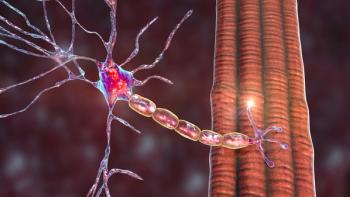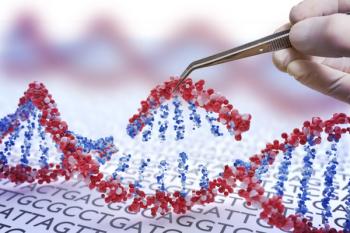
Study Shows Gene Therapies May Preserve Swallowing Function in SMA Patients
Preserving the ability to swallow reduces the need for invasive interventions and lowers the risk of life-threatening complications such as aspiration pneumonia.
Gene-based therapies for spinal muscular atrophy may help stabilize or improve swallowing function in patients, according to
The research team, led by Marta Ruggiero, of Associazione ‘La Nostra Famiglia’ – IRCCS ‘E. Medea’ - Scientific Hospital for Neurorehabilitation in Brindisi, Italy, analyzed 23 studies examining swallowing issues in SMA patients before and after the introduction of gene-based therapies. The findings indicate that patients receiving newer treatments showed trends toward stabilization or improvement in swallowing function, even in cases where respiratory support was previously recommended.
“Pre gene-based therapy studies revealed swallowing dysfunction as a prominent feature,” the study authors wrote. “Conversely, the post-treatment era suggests potential improvement.”
The analysis covered studies that included all three approved SMA treatments: Spinraza (nusinersen), which was the most common therapy, appearing in six studies; Zolgensma (onasemnogene abeparvovec), which was used in four; and Evrysdi (risdiplam) in two.
Patients with the SMA Type 1 historically have faced the most severe swallowing difficulties. In pre-treatment studies, these patients typically required feeding tubes by six months of age. Post-treatment data showed improved outcomes, with some patients maintaining oral feeding abilities.
Preserving the ability to swallow not only reduces the need for invasive interventions but also lowers the risk of life-threatening complications such as aspiration pneumonia. Losing the ability to swallow can also lead to less severe, but impactful side effects, both physical and mental.
“Common consequences include loss of appetite, weight loss, malnutrition, isolation, and depression, as mealtime plays a crucial role in social interactions,” the study authors wrote.
Before the advent of gene therapies, swallowing difficulties in SMA were assessed mainly through questionnaires and caregiver reports. However, since these medications have become available, clinicians have adopted video fluoroscopic swallow studies, or a diagnostic tool that uses real-time X-rays to track movement of foods and liquids through the mouth and throat, to identify issues such as aspiration or impaired swallowing mechanics.
The findings come as other research expands understanding of gene therapy’s broader impact. A recent study in Advances in Respiratory Medicine found
Newsletter
Get the latest industry news, event updates, and more from Managed healthcare Executive.























